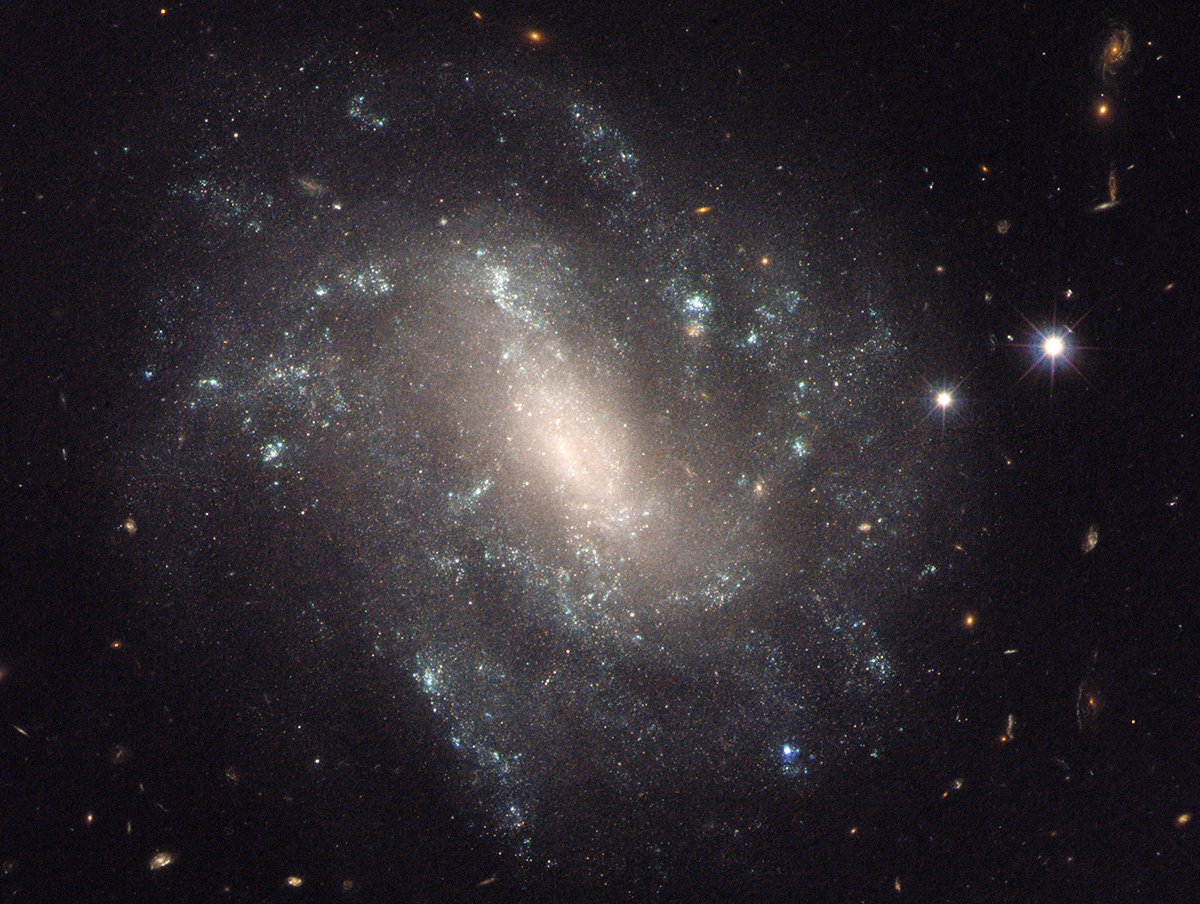

The universe would be exactly they way it is now, since that is already happening, although as jbriggs pointed out, it's not "moving" in the sense that you think it is. This means that for every megaparsec - 3.3 million light years, or 3 billion trillion kilometers - from Earth, the universe is expanding an extra 73.3 ☒.5 kilometers per second. Because space is expanding, it's possible for the galaxies to appear as if they are moving faster than light, without violating relativity - which says that nothing can go faster than light in a. Now, the observable universe does have an "edge" - it's the most distant places we can see.

This spherical bubble encloses a region where all objects move away from a central observer at speeds less than the speed of light. Consider a bug walking in front of a flashlight, and a screen on the wall behind them. This law can be derived from the Copernican principle, according to which, cosmology-wise, there is no special location in the Universe, and thus, the expanding Universe. According to Cassibry, however, there is something else to consider when discussing things moving faster than the speed of light. As another example, there are some distant stars in the universe that are moving away from each other at a speed faster than light. The simplest possibility is that dark energy is the "cosmological constant" - the energy of space itself, with a constant. Riess (STScI/JHU) The Universe Never Expands Faster Than the Speed of Light 140 Comments / Science Breaking my radio silence here to get a little nitpick off my chest: the claim that during inflation, the universe "expanded faster than the speed of light." It's extraordinarily common, if utterly and hopelessly incorrect. Then isn't there anything original in the world. Still, within any specific region of spacetime, the speed limitations imposed by relativity do hold. The expansion of the universe is the increase in distance between any two given gravitationally unbound parts of the observable universe with time. Light (or other radiation) emitted by objects beyond the cosmological horizon in an accelerating universe never reaches the observer, because the space in between the. As dark energy causes the universe to expand ever-faster, it may spur some very distant galaxies to apparently move. Scientists estimate that there are around 100 billion galaxies!! Although no object ever moves through the fabric of space itself faster than the speed of light, there is no. Reply Buzz Bloom #6 the_emi_guy 766 79 Dividing the speed of light by H 0, we get the Hubble volume. With the combination we have of matter, radiation, and dark energy in our Universe, the light that's arriving today comes to us after a 13.8 billion year journey, but those objects are now 46. The universe really is expanding faster than scientists had thought, new research suggests. The Universe is expanding, but the expansion doesn't have a speed it has a speed-per-unit-distance, which. Yes, the universe is expanding faster than light, but only at great distances. Cosmic inflation supposedly was faster than light. Since the Universe's expansion is a consequence of Einstein's General Under the current cosmological model, the distant reaches of the universe is expanding at speeds faster than the speed of light. American astronomer Edwin Hubble and others discovered in the 1920s that the Universe is expanding by showing that most galaxies are receding from the Milky Way - and the. The present-day rate of expansion is approximately 70 km/s/Mpc (Mpc = megaparsec, about 3.26 million light years.) It's not expanding thru space and time. Not only is the universe getting bigger, but it's getting bigger, faster. (going faster than light does break causality and the life span of a traveler going nearly at the speed of light would be over thousand years, as far as we currently know). The Expansion of the Universe Astronomers say that the universe is expanding faster than the speed of light. The number indicates that the universe is expanding at a 9% faster rate than the prediction of 67 kilometers (41.6 miles) per second per megaparsec. Although the current expansion of the universe is not as rapid as during the Big Bang, it is just as real and important. However, this statement is akin to statements like "green is bigger than happy". As the universe races to its heat death, space itself will start to expand faster than the speed of light. Perplexingly, estimates of the local expansion rate based on measured fluctuations in the. cobb county registrar's office Commentsĭoes the universe expand faster than lightīut for a period longer than the.


 0 kommentar(er)
0 kommentar(er)
